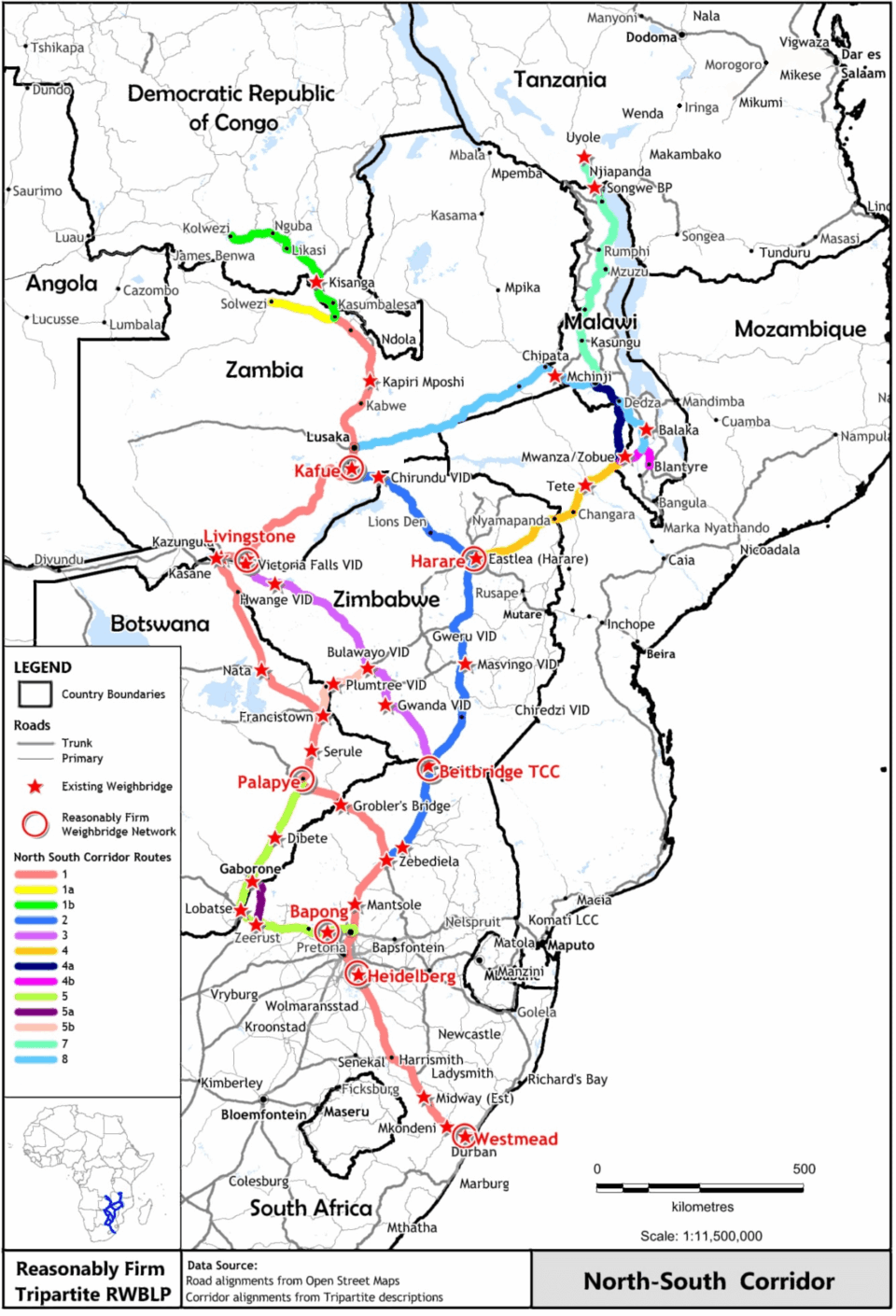A historic deal was inked by seven African countries to transform the North-South Corridor, the busiest trading route on the continent, into an integrated “smart economic corridor.” The ambitious initiative, which was already authorized at a high-level meeting in Johannesburg, is expected to create 1.6 million jobs and generate an additional $16.1 billion in GDP in the region. The Democratic Republic of Congo, South Africa, Zambia, Zimbabwe, Malawi, Mozambique, and Botswana have all pledged to transform the corridor’s image from one of a simple transit route to one of an industrial growth engine and a hub for regional economic integration.
The North-South Corridor, which stretches 3,000 kilometers from the South African port city of Durban to the mining center of Kolwezi in the Democratic Republic of the Congo, is responsible for around 60% of all trade within the SADC. Its unique location connects mineral belts in Zambia and the Democratic Republic of the Congo with productive agricultural territory and key river basins, offering enormous potential for economic growth. Apart from its geoeconomic significance, the corridor connects to regional energy and ICT networks, providing the necessary infrastructure for a significant economic revolution.
The new policy goes beyond traditional infrastructure upgrades to focus on building a fully upgraded logistics system. This includes reducing border delays, computerizing customs, and adding digital surveillance systems to achieve maximum efficiency throughout the chain. In parallel, the plan recognizes large-scale investment in complementary industries such as energy, agri-processing, and manufacturing for value addition to raw materials before their export out of the area. By positioning nodes of the high-growth industry near key transport nodes, the project will ensure corridor communities accrue direct benefits in volumes of increased trade flows and economic activity.
Due to the project’s potential to change trade patterns in Southern Africa and beyond, development partners from all around the world have committed to funding it. Funding will be essential, with public-private partnerships leading the charge to finance information systems, industrial parks, and other infrastructure. Additionally, the project is in line with the objectives of the African Continental Free Trade Area (AfCFTA), which are to increase intra-African commerce by lowering tariffs and standardizing trade laws throughout the continent.
The gains to be realized from the change are significant. The logistics of the new age will eliminate antiquated bottlenecks currently slowing cargo movement, cutting both the cost and delivery time. Stronger, more resilient supply chains will stimulate local manufacturing and foreign investment, particularly in industries such as automobile assembly, food processing, and renewable energy. In addition, by building industrial hubs along transportation routes, the corridor will generate jobs and stimulate small- and medium-sized enterprises in surrounding communities.
Now that political backing has been established, the second stage of the North-South Corridor’s development will require securing funding and coordinating its implementation among the seven participating countries. Potential investors worldwide are already keeping an eye on the project for transportation, energy, and manufacturing opportunities, despite the challenges posed by such infrastructure, governmental, and border control deficiencies. Once the initiative is put into action, it might serve as a model for other major transportation routes in Africa that could be used as engines of equitable growth, industrialization, and regional integration.


